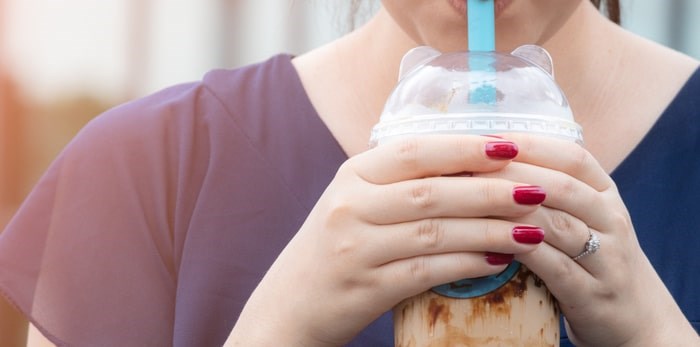 Vancouver’s bubble tea businesses will have an extra year to figure out how to tackle the plastic straw ban. Photo: Drinking bubble tea/Shutterstock
Vancouver’s bubble tea businesses will have an extra year to figure out how to tackle the plastic straw ban. Photo: Drinking bubble tea/Shutterstock
The City of Â鶹´«Ã½Ó³»is poised to enact a wide-reaching single-use plastics ban, which includes significant restrictions on items like plastic straws.
In addition to straws, the ban includes items like disposable cups and utensils, as well as plastic shopping bags - event the ones labeled compostable.
The straw ban will be the first phase enacted, with an effective date of April 22, 2020 (Earth Day). The other phases will come into effect in January 2021.
However, a issued by the General Manager of Engineering Services, in consultation with Chief Licence Inspector, and Director of Civic Engagement and Communications from the City of Â鶹´«Ã½Ó³»that will be presented in support of the ban with specific recommendations during a vote on November 27, points to some noteworthy exemptions from the ban.
With an aim to eliminate plastic straw waste, the City will ban single-use plastic and compostable plastic straws, however they will allow business to make individual paper-wrapped bendable plastic straws available for customers with accessibility issues by request.
They're also giving bubble tea business one additional year before the ban applies to them.
Why? Because bubble tea is tied to "cultural identity."
"Many residents consider drinking bubble tea to be part of their cultural identify [sic]. Businesses that sell bubble tea drinks were among the most dependent on plastic straws and are highly concerned about impacts to their business if they cannot find ways to serve bubble tea that do not require plastic straws," notes the report.
Bubble tea businesses have been among the most vocal regarding concerns about the sweeping ban as initially proposed. They're also a rapidly-expanding sector of the food and beverage business in Vancouver, with chain after chain launching in the city.
Other bubble tea business - and those working to help those businesses - have been actively working on solutions for some time now, however.
It's been over a year since the Richmond-based BBT Shop began selling reusable bubble tea straws. The reusable "Boba Straw" brought in nearly double the funding they sought in 2018 via crowdfunding. And then there are also straws being made out of dry pasta.
While businesses won't be able to offer individual single-use straws, there are further exemptions: Hospitals and community care facilities; plastic straws attached to juice boxes/pouches; and packages of at least 20 plastic straws sold for personal use.
Straws, and other single-use plastics like shopping bags, that are labeled "compostable" are also being banned at the moment because those items are generally not accepted at waste facilities, and do not break down on their own when left as litter.
The report notes that the recommendations in support of the ban "have been developed through extensive engagement with the public, businesses and a multitude of stakeholders and are supported by technical research."


